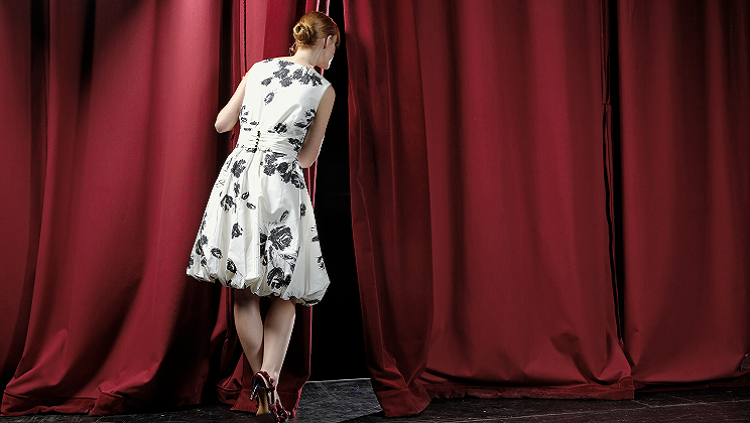Thomas Guthrie’s new arrangement of Schubert’s Die Schöne Mullerin with the Alehouse Boys released on Rubicon Classics kicks off/marks the 200th anniversary of this song cycle, bringing back the playful, reinvention the composer and his friends could/might recognise.
Guthrie BaS Das Wandern Alehouse style from Gothenburg studio Epidemin
I’ve loved Schubert’s songs ever since I first heard them as a choirboy, and am discovering that you can never stop learning new things about them. Maybe it’s because they spring from storytelling situations. Stories, as we know, are always new because every time you hear them, or indeed tell them, you are different, the world is different, and the meaning to ourselves, to anyone who hears them, is different.
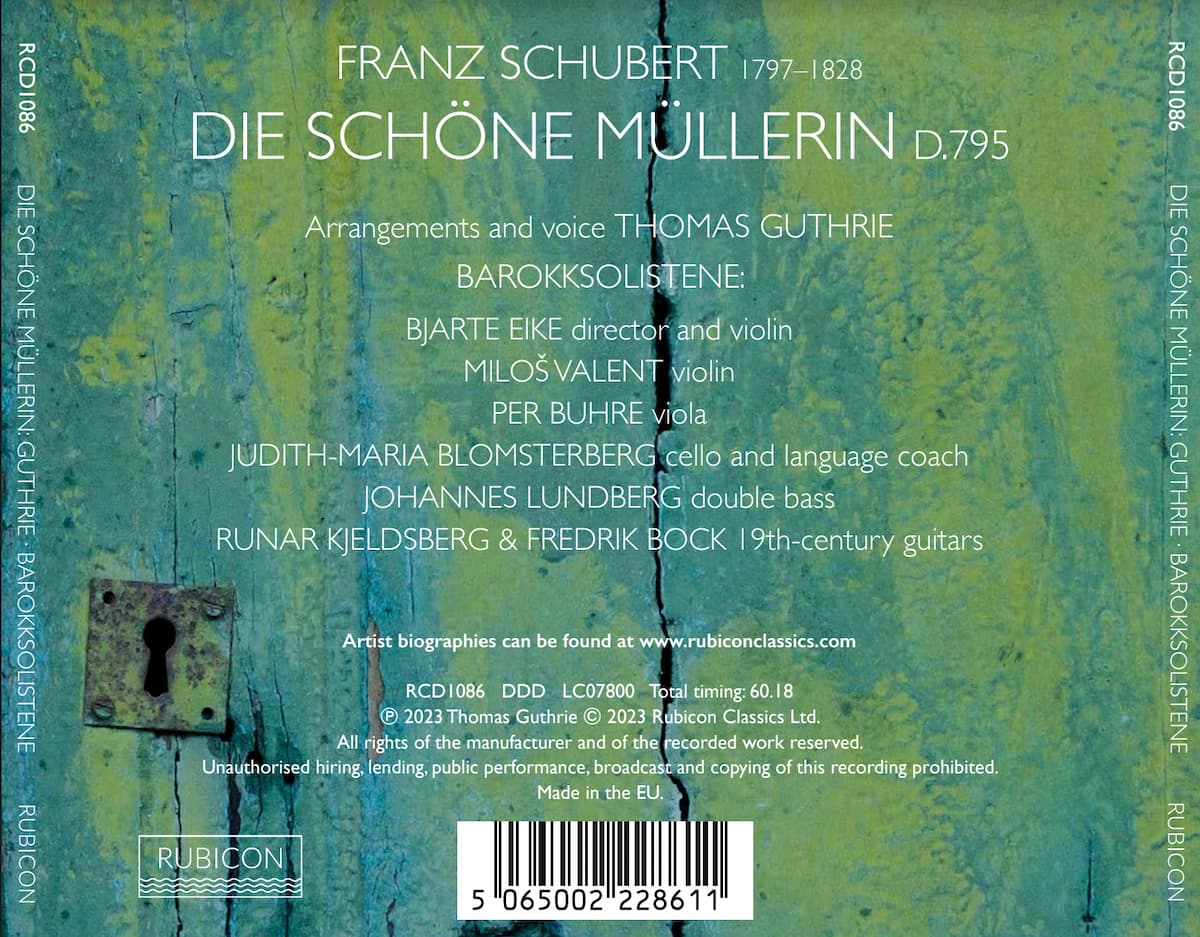
Schubert’s Die Schöne Mullerin album cover © Rubicon Classics
In Music and Theatre for All’s Schubert 200 project (marking the bicentenaries of the 3 song cycles), we’ve tried to reflect this by exploring themes and ideas in new ways and with new friends and collaborators. Written at a time of war, great poverty, high infant mortality, and short life expectancy, with Schubert himself suffering from a disease that would kill him relatively soon, we can imagine that the evenings when these poems and songs were shared were convivial attempts to shut out the outside world. Drinking, friendship, games, stories, music. Bring your own instrument. Bring your own costume. Laughter, tears, escape, a close-quarters candle-lit exchange of human energy, probably rowdy, often moving. They never performed the song cycle in its entirety. It was ‘oh, do that one when she says it’s going to rain’, or ‘come and play the lullaby from the end’. And then onto something else, another poem, another song, maybe a chat about the latest hit show: Schubert famously came to blows and knocked over both his and his interlocutor’s beer while discussing the merits or otherwise of a certain singer after a performance they’d both witnessed. Talking of hit shows, various versions of the tale of ‘Die schöne Müllerin’ were playing in theatres at the time, its tale of a young man leaving the town (and the terrifyingly rapid industrialisation there) to connect with nature and himself, only to find neither able to sustain him, catching the mood.
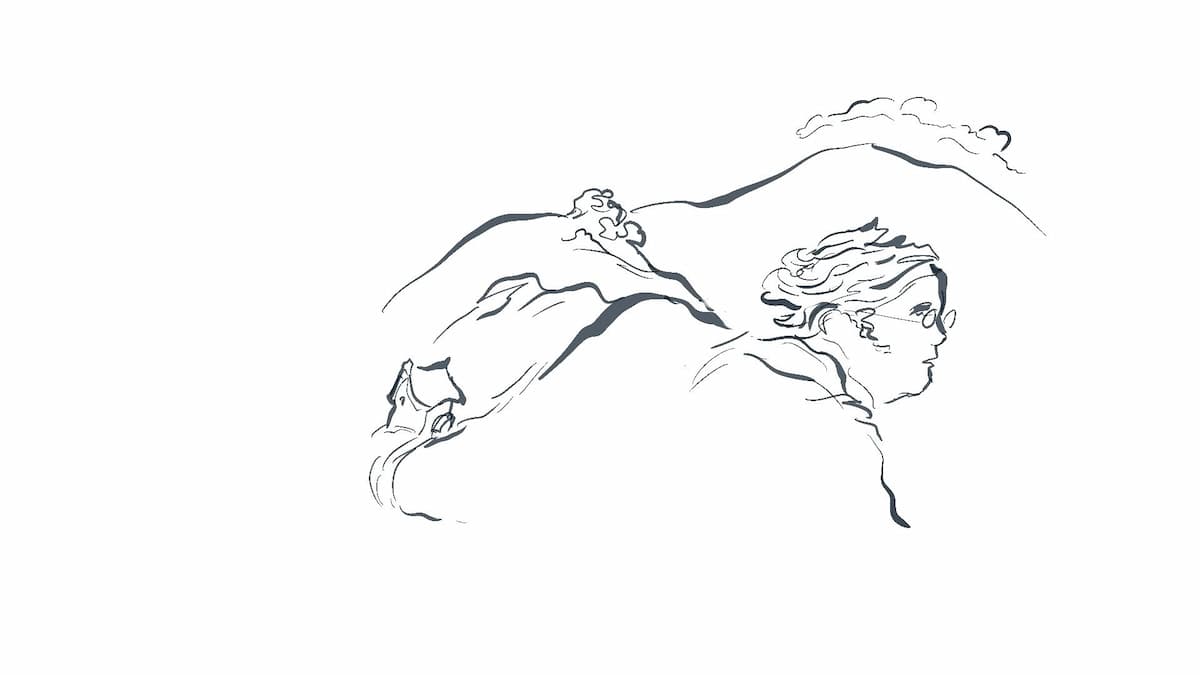
©Chris Glynn
In the light of this, to perform these songs in a formal, unnaturally refined environment, let alone with a large grand piano not seen for another 100 years or so, is clearly far from what Schubert was about when he wrote them. That’s not to say evenings shared like that can’t be beautiful and moving. I myself have enjoyed several memorable ones. At one time, I think I was the owner – or at least aware – of pretty well every recording ever made of the cycle, with Gerard Souzay and Fritz Wunderlich as particular favourites. But it is to say we can maybe benefit from a fresh look. Getting close to what a composer as great and well-loved as Schubert might, after all, have truly intended can never be a bad thing and might even reveal new wonders.
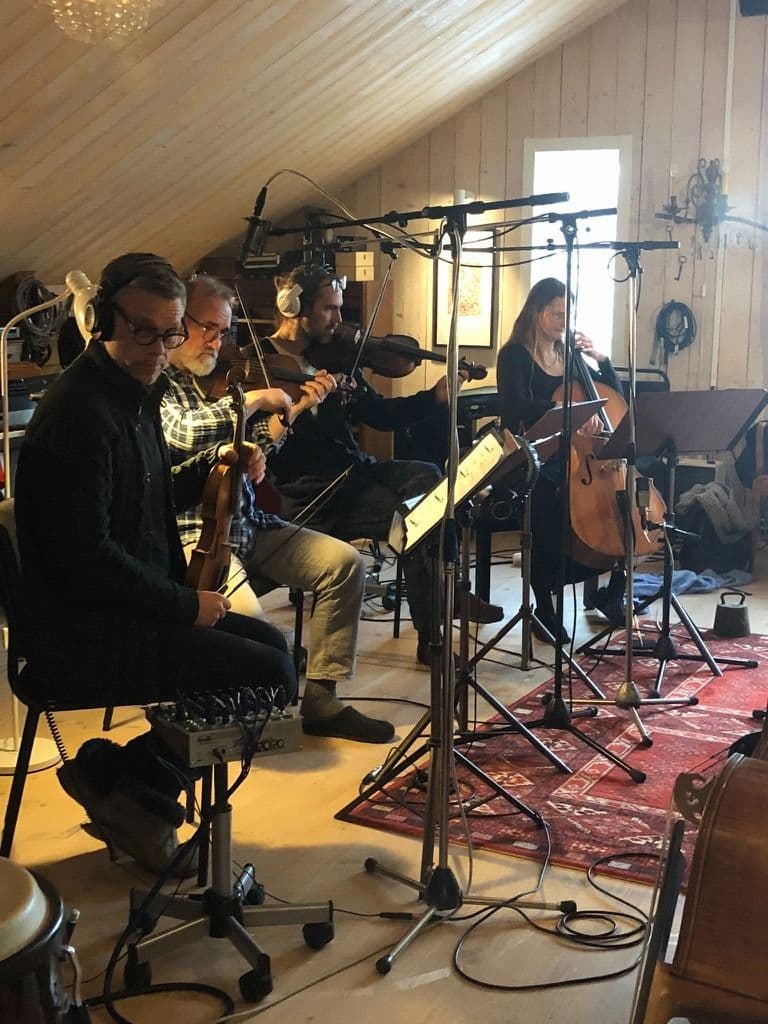
Recording at the Gothenburg studio © Thomas Guthrie
Working with the artist Chris Glynn has opened new doors. Exploring the themes of the songs through folk art of the time, taking a political approach, working at narrative through animation, has broadened our sense of how the songs can reach us now, and inspire our own resonances.
Schubert/Müller Die Neugierige, Guthrie/Barokksolistene, Epidemin Studios (Gothenburg), 2022
Similarly, working with Music and Theatre for All’s Urban Opera project, the Lewisham Creative Chorus have collectively written their own song cycle in response. We have even explored performing them together, emphasising the necessary contemporary relevance of any storytelling experience, raising money at the same time for the UK suicide prevention charity, Papyrus. The Lewisham Creative Chorus’ songs also explore an adolescent’s journey as he leaves home, hopeful, damaged, and directionless. He too meets a girl, only she is more strong-willed, more determined to advance social change than Wilhelm Müller’s Müllerin. Where the cycles diverge most clearly is telling: at his lowest point, in the Lewisham cycle, the boy is not left alone. Schubert’s young wanderer feels so isolated and hopeless that he has no choice but to merge himself with the stream who had, to that point, proved to be his only lasting companion. But the boy in the Lewisham cycle finds himself contained by the community that surrounds him. ‘I need you, you need me,’ the chorus sings, and ‘we must see each other, we must hear each other’. Which brings with it a broader resonance of the evenings for which Schubert wrote his songs: we may not be able to change the world around us or bring peace or comfort to those who suffer, or even ourselves, but we can share moments that help us feel alive, that we matter, that there is hope and the potential for goodness, even if only for a few hours.
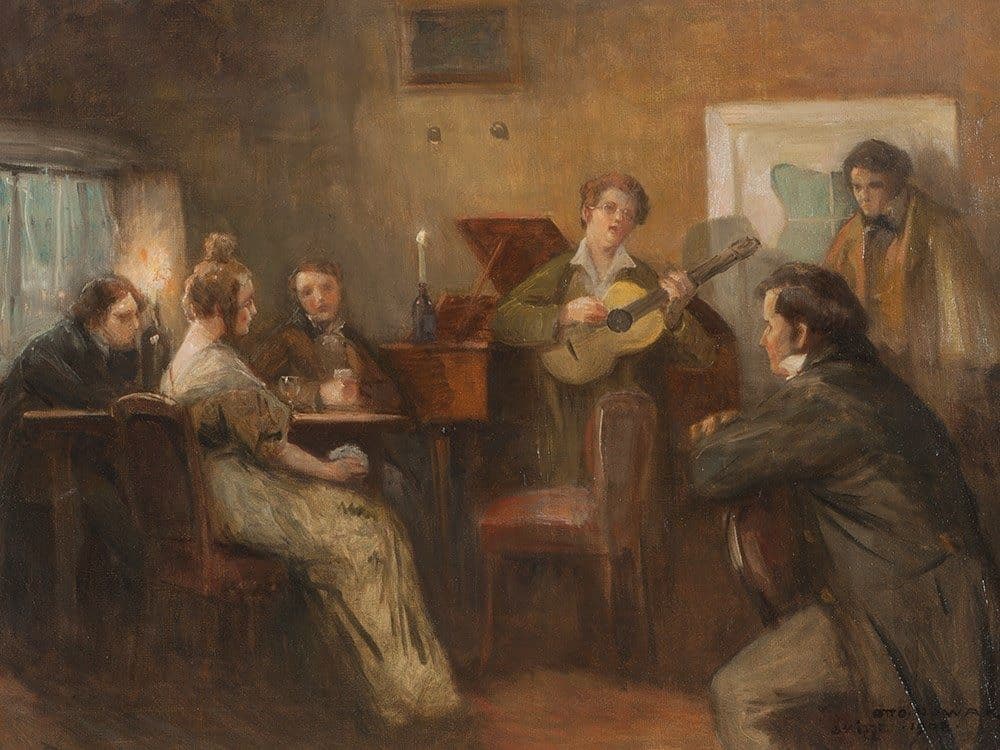
Otto Nowak: Schubert playing guitar with candlelight, accompanied by Beethoven and other musicians, 1901
The musical arrangements in our recording with Barokksolistene, dir Bjarte Eike, co-creators of the Alehouse and Playhouse sessions, are not intended to be definitive. They are meant to be platforms for what we call narrative improvisation, where the colours and invention added spontaneously align with the intention of the storyteller – to move, to clarify, to inspire the imagination and lose the listener in their own experience and thoughts. In this way we feel we can share the love of Schubert we have, and at the same time do him true justice, step up to the plate, and bring his wonderful touching music to new ears. This is ancient Rhetoric in action (we know Schubert was himself taught in Greek up to the age of 15), which was part of the basis of the education system of the time. Performers were expected to embellish, to invent, to grab their audience’s attention on the day that the story was being shared. Schubert would expect nothing less.
Music and Theatre for All’s Schubert 200 project is the culmination of a long journey. Or rather, it’s the start of that culmination. Actually, culmination is not the right word at all. It’s a stop-off. I really hope the journey continues.
For more of the best in classical music, sign up for our E-Newsletter
Thomas Guthrie is an innovative and award-winning British director and musician working in theatre and music to tell stories in vivid, new, and direct ways. His own critically acclaimed productions of Le Nozze di Figaro and Die Zauberflöte at Longborough Festival Opera led to an invitation to direct Wagner’s Der Fliegende Holländer there in 2018 (subsequently called ‘one of the best productions at this venue I have seen’ by Rupert Christiansen in the Telegraph).
With a reputation for stylish, unfussy, energetic, physical, and theatrical work, the clarity of the storytelling, the commitment of the performers, and a pre-eminence of musical values are at the heart of his productions.
Guthrie also works with non-professionals of all ages and backgrounds. Some of his most thrilling projects have been in this field, including work with Streetwise Opera, the Prison Choir Project, the National Youth Choir of Great Britain, and the Royal Opera House, through whom he has inspired hundreds to connect with their inner Caruso and raise the roof.
His production of Winterreise with puppet has been running for almost 20 years (’It was absolutely a life-changing experience seeing Thomas Guthrie’s production of Winterreise in Kent.’ (Youtube comment). ‘audaciously expressive, chilling and thrilling’ (Sunday Times), ’an extraordinary experience’ (Opera Now).
Thomas is the founder and artistic director of the charity Music and Theatre for All, former Guest Artistic Advisor to the York Early Music Festival, was Belknap Fellow at Princeton University, New Jersey in 2017, and is proud to sing and play with Bjarte Eike’s Alehouse Boys.
For more of the best in classical music, sign up for our E-Newsletter


